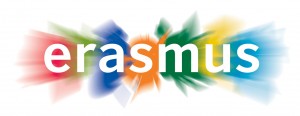 Horizon 2020 is the replacement of FP7 – Europe’s largest funding programme, managed by the European Commission (EC). In 2014, FP7 will end and Horizon 2020 will be the primary mechanism through which to seek EC funding.
Horizon 2020 is the replacement of FP7 – Europe’s largest funding programme, managed by the European Commission (EC). In 2014, FP7 will end and Horizon 2020 will be the primary mechanism through which to seek EC funding.
 A confidential draft paper was released this week which details the proposed direction of Horizon 2020. Every day next week I will post important summaries of sections of the document most relevant to you so you can get a head start on preparing for Horizon 2020:
A confidential draft paper was released this week which details the proposed direction of Horizon 2020. Every day next week I will post important summaries of sections of the document most relevant to you so you can get a head start on preparing for Horizon 2020:
- Monday covers the rationale behind Horizon 2020
- Tuesday will detail the 3 funding priority areas of Horizon 2020
- Wednesday will outline funding proposed in the most relevant funding area for BU staff; ‘Societal Challenges’
- Thursday details proposals for the Marie Curie Programme throughout Horizon 2020
- Friday outlines the proposals for simplification of the rules and regulations of EC funding

- BU is the only University in the UK who has summarised this document and will disseminate it to their staff, so make sure you take full advantage of this information!









 Seminar groups are multi-institutional groups of academic researchers, postgraduate students and non-academic users who meet regularly to exchange information and ideas with the aim of advancing research within their fields. Where appropriate, seminar group members should be drawn from the public sector, commercial private sector, third sector and other relevant organisations as well as from academic institutions. We would particularly encourage seminar groups designed to bring together leading researchers from across disciplines to identify new research agendas or capacity building priorities. These grants are non-fEC and are limited to £15,000. This covers:
Seminar groups are multi-institutional groups of academic researchers, postgraduate students and non-academic users who meet regularly to exchange information and ideas with the aim of advancing research within their fields. Where appropriate, seminar group members should be drawn from the public sector, commercial private sector, third sector and other relevant organisations as well as from academic institutions. We would particularly encourage seminar groups designed to bring together leading researchers from across disciplines to identify new research agendas or capacity building priorities. These grants are non-fEC and are limited to £15,000. This covers:



 Interested in spending a year conducting research at an overseas university? The following funding schemes may be of interest:
Interested in spending a year conducting research at an overseas university? The following funding schemes may be of interest: The
The 

 Dr Martin Pickard is coming to BU on 23rd and 24th November 2011 to deliver interactive workshops on the preparation of research council applications.
Dr Martin Pickard is coming to BU on 23rd and 24th November 2011 to deliver interactive workshops on the preparation of research council applications. 











 SPROUT: From Sustainable Research to Sustainable Research Lives
SPROUT: From Sustainable Research to Sustainable Research Lives BRIAN upgrade and new look
BRIAN upgrade and new look Seeing the fruits of your labour in Bangladesh
Seeing the fruits of your labour in Bangladesh Exploring Embodied Research: Body Map Storytelling Workshop & Research Seminar
Exploring Embodied Research: Body Map Storytelling Workshop & Research Seminar Marking a Milestone: The Swash Channel Wreck Book Launch
Marking a Milestone: The Swash Channel Wreck Book Launch ECR Funding Open Call: Research Culture & Community Grant – Application Deadline Friday 12 December
ECR Funding Open Call: Research Culture & Community Grant – Application Deadline Friday 12 December MSCA Postdoctoral Fellowships 2025 Call
MSCA Postdoctoral Fellowships 2025 Call ERC Advanced Grant 2025 Webinar
ERC Advanced Grant 2025 Webinar Update on UKRO services
Update on UKRO services European research project exploring use of ‘virtual twins’ to better manage metabolic associated fatty liver disease
European research project exploring use of ‘virtual twins’ to better manage metabolic associated fatty liver disease